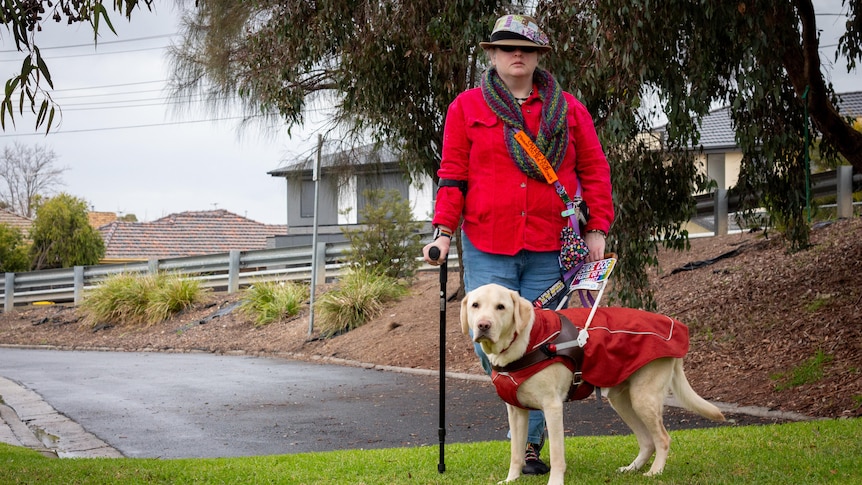Victorian woman Kathryn Beaton says repeated, illegal denials of service from drivers refusing to allow her guide dog into their vehicles have left her effectively housebound.
Edited to add: “anxious and in tears” is some shit tier headline writing when the real problem is the loss of independence and freedom, and the hours she has had to spend waiting just to be actively discriminated against.



Just to add to the controversy, in a perfect world with good public transportation, how do you still accommodate both? On a train you could have an animal-free car but what about buses? You can’t have a separate bus for every single accommodation.
Where I live busses are often marked in the timetable as to whether they are wheelchair accessible. So there’s precedent already for mixed accomodation transport and informing customers in advance, it might be possible to extend that system further.
These days in most regions that would be illegal and the only leniency is for existing infrastructure where upgrades are challenging - but even then you need a transition plan in place… even if it is one that will take decades. Eventually, every bus needs to be accessible.
It’s just not good enough for people who cannot drive to also have limited access to public transport.
For the person who can’t share a vehicle with an assistance dog… really the only possible answer is public transport isn’t really accessible to them. That’s unfortunate but I don’t really see a solution other than travelling by car.
Discrimination legislation doesn’t require services be available for ever person, they just require taking reasonable steps to be available to as many people as practically possible.
I have severe allergies and on public transport I wear N95 mask. It effectively filters out everything that might be a problem for me, and as a bonus have avoided getting sick even when everyone around me seems to be catching things. If everyone did this we could eliminate airborne viruses and many other conditions, but I’m not holding out hope for that.
The increased air resistance of a mask is often a deal breaker for people with breathing issues.
During covid-19 the best advice for those people is you just need to deal with it, but only because your breathing issues make covid-19 especially high risk for those people. But it was very uncomfortable.
Well, if we properly defined ‘dog allergy’ as a disability, maybe the accessibility tool that we could use to accommodate it might be like… a gas mask or something like that?
It’d be strange at first, but eventually we’d treat them no differently than a cane or wheelchair.
I like your problem-solving mind, but I have some bad news about how people who use canes and wheelchairs are also treated.
So the thing to understand is that while well designed cities have good public transit, what they actually have better is walkability. You should be able to do most of your business without taking any transit options. This saves the disabled woman from needing to use transit and helps reduce the amount of service animals in transit.
There still needs to be some degree of mixing but there’s limitations as to how protected we can make things for everyone. Some people have an airborne allergy to peanuts but we aren’t going to ban peanuts everywhere to accommodate. People with severe animal allergies will have up continue finding ways to cope since we aren’t going to ban people from having pets. The best we can do is what’s reasonable.
A) You have excellent public transport suitable for service animals, wheelchairs, blind people, etc
B) People who can’t take it for whatever reason travel by car. If you can get one (you won’t get one for asthma…) a disability parking permit is a huge help. They’re recognised globally and make it a lot easier to park in metropolitan areas. Those permits are valid whether you’re driving or a passenger. With one of those permits even car-hostile places like the Netherlands become practical.